WHAT PORCINI LOOK LIKE
Dried Porcini mushrooms have brown caps 2-8 inches wide with a thin white rim and white or yellow pores. Their stalks are bulbous at first, becoming club-shaped or cylindrical, white or light brown.
These are the key signs of a porcino: 1. brown cap, 2. white rim of the cap, 3. white pores that become yellow with age, 4. bulbous white stalk which becomes cylindrical with age has a net-like pattern on the surface which is more prominent in the upper part of the stalk.
There is an albino version of porcini mushroom the king bolete, which is all white. It is very rare. I have not found it yet in the 30 years that I forage mushrooms. I will add a photo if I do.
Two other species resemble the king bolete and are often considered porcini as well:
QUEEN BOLETE, AKA PINEWOOD BOLETE (BOLETUS PINOPHILUS)
Queen bolete is very like king bolete but has a red-brown cap with white pores that become yellow with age, white pores that become yellow with age, and a white bulbous stalk that becomes cylindrical and pink-brown. Its favored tree is pine.
SUMMER BOLETE (BOLETUS RETICULATUS)
This fantastic mushroom grows during summer in a symbiotic relationship with oaks. It resembles the king bolete but has a paler cap, and its stalk is browner.
There are other edible boletes in the Boletus family that resemble porcini. They are all edible and high-quality mushrooms.
There are similar boletes that are inedible or poisonous, though. Inedible look-alike species are bitter. All poisonous porcino look-alikes have red pores. Red color on a bolete is generally a big no until you become experienced enough to identify the few edible boletes that have red on them.
BITTER BOLETE (TYPOPHILLUS FELLEUS)
You can tell a bitter bolete from a porcino by its lighter cap, pink pores, and yellow stalk with a prominent net pattern. If you are unsure, you can taste a tiny bit and spit it out. A porcino has a pleasant flavor, while a bitter bolete is bitter.
On the stalk of a bitter bolete, the net pattern is more prominent than for porcini.
If you mismatch a single small bitter bolete for a porcino and cook it, the whole meal will become so bitter it will be inedible.
BOLETUS SATANAS, BOLETUS LUPINUS, BOLETUS LEGALIAE, BOLETUS RHODAXANTHUS, AND OTHER POISONOUS BOLETES
Unlike porcini, the poisonous boletes all have a shade of red on their pores, and some even on the stalk or the cap. Their flesh turns blue if harmed. They are bitter, but taste-testing is not a good idea. licking some of them could cause you heavy nausea and vomiting.
The poisonous boletes are scarce, and none of them are deadly. Still, take special care when identifying boletes. They can cause gastrointestinal poisoning that lasts for several days.
I don’t elaborate deeper into how to identify them in this post due to the red color.
When do we grow Dried Porcini mushrooms?
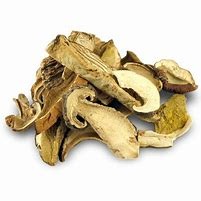
Porcini mushroom season starts in late spring and lasts until fall. The high season is in late summer and early fall. The season starts about 10 days after the first heavy rain. They grow the most if the weather is warm and in the days after a rain.
WHERE DO PORCINI GROW?
You can find porcini in the temporal zone’s woodlands worldwide, including North America, Europe, South Africa, and New Zealand.
WHAT TREES DO PORCINI GROW UNDER
Porcini form symbiotic relationships called mycorrhiza with many tree species. Their most favorite companions are spruce, pine, and chestnut trees. When you go forage for them in the US or Canada, your best bet is a coniferous forest.
In mycorrhizal relationships, the mushroom gets carbohydrates, products of photosynthesis, from the tree. In return, mushrooms provide the tree with water and minerals that they absorb from the soil. The trees can also use the mycelium network formed to spread messages to other trees.
Yes, you read that right. Trees communicate with each other about events around them and how they “feel.” That makes the mushrooms’ mycelium network the world’s first social medium.
BEWARE OF PORCINI FROM POLLUTED AREAS
Porcini can absorb chemicals and especially heavy metals. Avoid porcini mushrooms from polluted areas. While one such mushroom will cause little to no harm, long-term consumption could lead to cumulative poisoning and serious health problems.
Luckily, foraging porcini mushrooms from a forest outside of civilization are safe.
MEDICINAL EFFECTS OF PORCINI
As proven by research, king bolete contains compounds that have anti-lumbago, antioxidative, and antitumor effects.
This is typical for the mushroom kingdom: great edibles double as medicinal mushrooms. To my knowledge, there are no porcini-based supplements on the market. But I indulge in porcini so often that of it as self-medication.
cooking Dried Porcini mushrooms
NUTRITIONAL VALUES OF PORCINI
DON’T EAT PORCINI RAW
Porcini mushrooms need heat preparation. They are difficult to digest raw, and while some people can handle them raw, they could cause gastric upset to others.
WHAT ARE PORCINI GOOD FOR
Porcini have a mild umami flavor with a nutty tone. They are culinary universal. You can use them in almost any kind of meal, but they are excellent in sauces, soups, and risottos. And they do wonders when you combine them with red meat.
SUBSTITUTES
The mild umami taste of porcini is only replaceable with other boletes. If you don’t have any, don’t expect other mushrooms to substitute them in a porcini recipe. The taste of the meal would be different and often disharmonic.
Shiitake mushrooms are often suggested as a porcini substitute for their umami flavor and availability. But, shiitake is also less mushroomy and has a very dominant sulfurous aroma, disturbing in most porcini-based recipes, which are supposed to have a mushroomy aroma.
Dried Porcini mushrooms in oil
The less known Italian method of marinating porcini in olive oil conserves their flavor while also giving them a chewy texture. “Porcini sott’olio,” as they called, make a great first course or snack; or, even better, an excellent gift for mushroom-loving friends.
CANNING IN VINEGAR
Porcini mushroom pickles are quite popular, especially in Eastern Europe, as a snack or a side dish for fatty foods. If you like vegetable pickles, you will like pickled porcini too. They are sour, rubbery, and delicate. They would only last for a few weeks, but canned ones keep for a year.
FREEZING COOKED PORCINI
Don’t freeze fresh porcini. To freeze porcini, sauté them first if you want to use them for any meal later. Once they cool down, seel them well in a container and put them in a freezer. They will keep for at least 3 months. You can freeze any porcini meal in the same way.
HOW TO TELL IF A PORCINO IS BAD
Porcini can go putrid, and the changes may not be visible. The best way to determine if a porcino has gone bad already is by the time that passed since foraging. Fresh porcini will only keep for a day (or for 3 days if stored in a fridge).
Once changes become visible and your porcini soften and fade, definitely toss them.
Can Dried Porcini mushrooms make you sick?
Like meat, porcini contain proteins that can become botulinum toxin if they become putrid. To avoid food poisoning, never keep porcini in a plastic bag, store them in the fridge, and toss them if they are too old.
IMPERFECTIONS
If there are insect tunnels in the flesh or yellow spots in the stalk of your porcini, cut the parts off and toss them. This has little to no effect on the quality of the mushrooms. But, use mushrooms that had worms for immediate cooking. Don’t dry them.
This is too much. Toss the whole mushroom.
White spots on top of the cap can caused by growing in the sunlight. Don’t worry about them if the mushroom grew in a sunny area.
WILL FROST KILL PORCINI?
When the temperatures become freezing, the water inside the porcino becomes ice, increases volume, and kills the mushroom’s cells. Once the mushroom unfreezes, it will start to rot, which may not be clear from the outside. Avoid foraging porcini that froze and unfroze.
You can read more about this topic in my post This is how you forage mushrooms safely (anyone can do it).
WHAT ABOUT PORCINI THAT ARE SOAKED IN WATER?
Porcini love rain. But since they soak water in like a sponge, there is a limit to how much rain they can survive. A long rain will kill them. Don’t forage porcini that are so watery that they drip water or porcini with visible changes due to getting over and then drying.
As the connective tissues stopped working, the pores split from the cap of this porcino. But overhydration isn’t always this plain.
MOLDY PORCINI
Unlike other boletes, porcini aren’t attacked by mold. In case you find a moldy bolete, leave it behind or toss it. Don’t cut off the moldy parts. The mold is a fungus, and its invisible mycelium spreads through the entire mushroom.
CAN PORCINI MUSHROOMS BE CULTIVATED?
Porcini mushrooms are mycorrhizal and need a complex ecosystem. Because of that, they cannot be cultivate. Don’t buy porcini spores or mycelium. It won’t work. The offers are a scam.
The author of the following video explains the topic more:
BUYING PORCINI MUSHROOMS
In season, you will be able to buy porcini mushrooms in markets and grocery stores. The supply will always Limited because porcini cannot be cultivate. The usual price is $30 per pound of fresh porcini and 5-10 times as much for dried porcini. It may go lower in great seasons.
WHERE ARE THEY FROM?
Fresh porcini for sale should be harvest. They wouldn’t last fresh if transported overseas, so avoid purchasing such mushrooms. Dried porcini can be from the US, Canada, Europe, Asia, or Australia.
WHERE TO BUY DRIED PORCINI MUSHROOMS
Dried porcini are often sold in health food stores. Also, almost any larger supermarket can have them in the gourmet section. Many foragers dry their porcini and sell them online while the stocks from the most recent season last.
PORCINI POWDER
Porcini powder is a potent mushroom spice made by grinding dried porcini. It is so aromatic that with half a teaspoon of porcini powder, you will add a lovely mushroomy flavor to almost any meal.
You can buy porcini powder, but I recommend making your own because 1. it is quite expensive (justifiably) and 2. because foraging porcini is great fun!
MOLDY PORCINI
Unlike other boletes, porcini aren’t attacked by mold. In case you find a moldy bolete, leave it behind or toss it. Don’t cut off the moldy parts. The mold is a fungus, and its invisible mycelium spreads through the entire mushroom.
I LOVE PORCINI
Well, since you have read this far, you noticed that by now. It is the combination of porcini’s delicious taste, mushroomy aroma, cute looks, and the joy they cause me every time I find them that makes me love them. Give them a chance, and you will fall for them too.
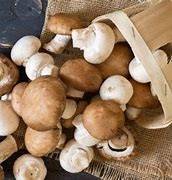
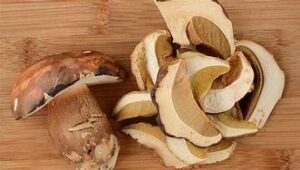
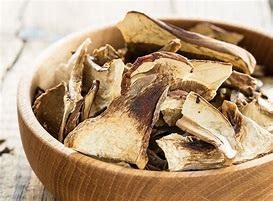

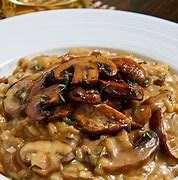
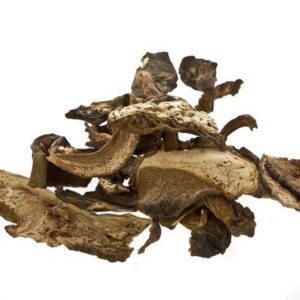


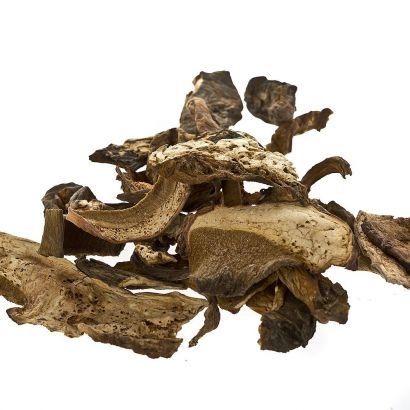

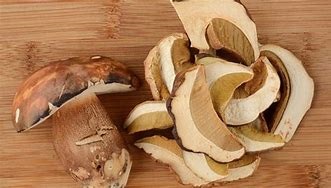


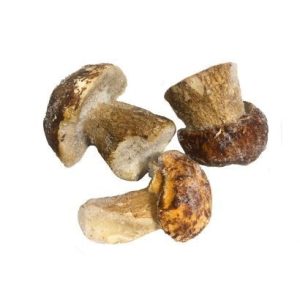
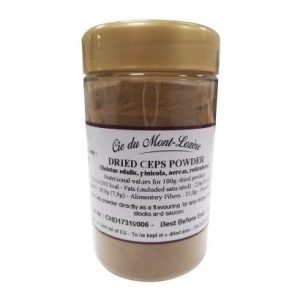
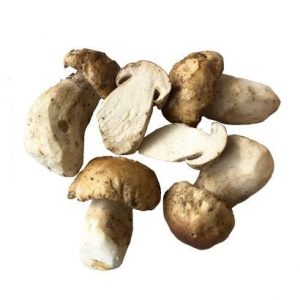
Reviews
There are no reviews yet.